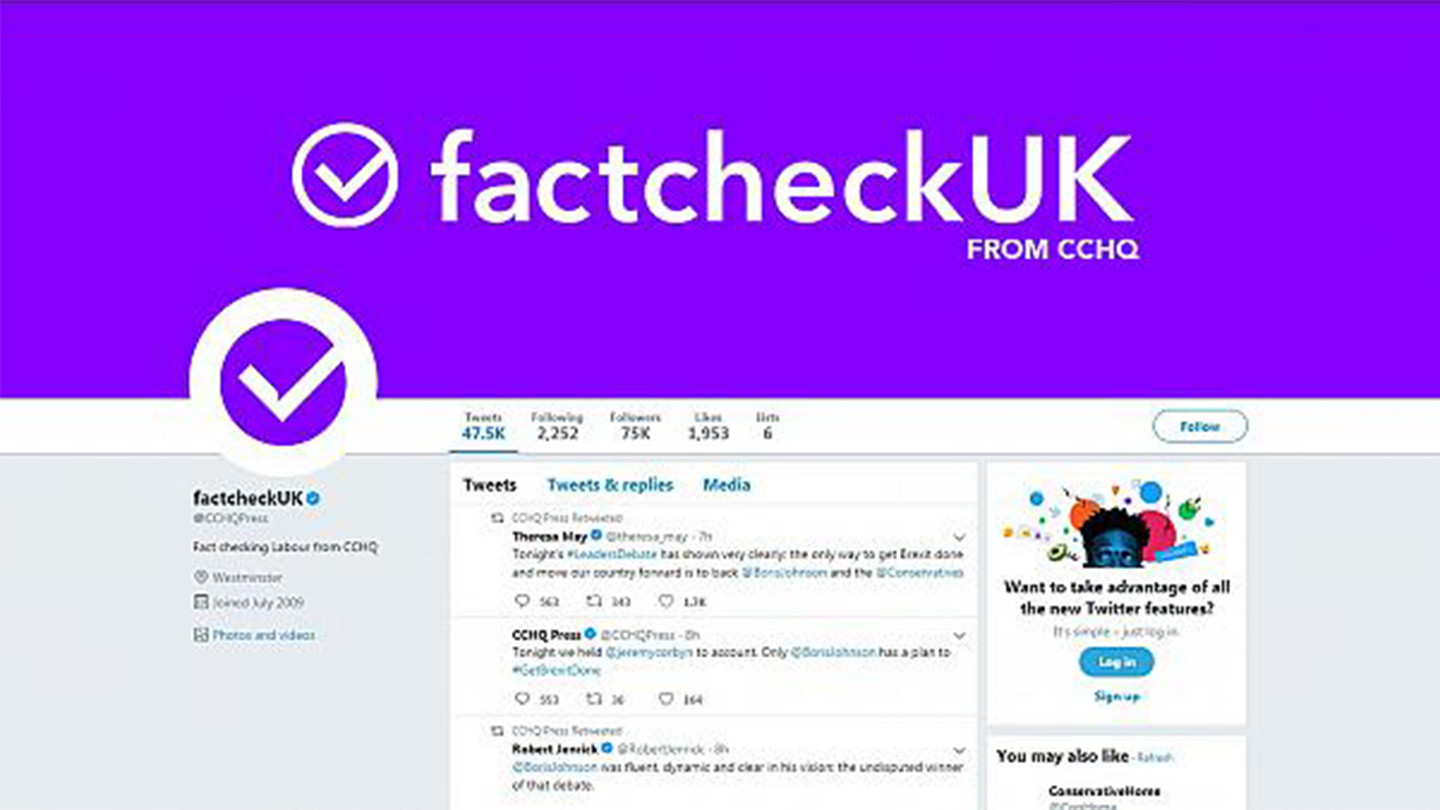Read the rest of i-D’s 2019 election content here.
Who can you trust online? How low is too low for political parties to go? It would be impossible to try and guess now what this election will end up being remembered for, but claims of dirty tricks have been dominating the campaign so far.
Politicians being less than upstanding to get one over their opponent is nothing new – if anything, it is a long and proud tradition around the world – but this year feels different.
First, there was the Keir Starmer video, pushed by the Conservatives’ social media channels in early November. Taken from Good Morning Britain, the clip featured the shadow Brexit secretary being asked to explain Labour’s position on Brexit, and being left unable to speak.
Below his confused and awkward face was the banner “Labour has no plan for Brexit”. The ad was neat enough, but there was one minor issue; it’s not what happened. Starmer did appear on GMB and did get asked about the EU, but provided a long and competent answer.
The Conservatives had just edited the video to seem like he hadn’t, by splicing in footage of a silent Starmer listening to an earlier question in place of his actual response. Outrage followed but it didn’t stop their online team; two weeks later, they rebranded the @CCHQPress Twitter account as “factcheckUK” for the duration of Johnson’s television debate against Jeremy Corbyn. The move was widely criticised, but the account only received a slap on the wrist from Twitter.
Later that week, the Labour party launch its manifesto, and voters googling “Labour” afterwards were directed to “Labourmanifesto.co.uk”, which featured the party’s trademark red background and picture of Corbyn, along with the slogan “No plan for Brexit / Higher taxes / Two more referendums”.
Unsurprisingly, it had been created by the Conservatives, again. The party has now been criticised by opposing parties, journalists, commentators, and even some from its own side for playing so dirty in its fight against Labour, but are they really doing anything new?
“There was a lot of focus in 2005 on ‘dirty tricks’ and it does feel as if there has been more talk about ‘dirty tricks’ in this election than in the ones since then”, says former Labour adviser Theo Bertram. “In 2005, Michael Howard sacked a Minister after Labour leaked a tape to The Times and I don’t think we’ve seen that level of impact this time.”
This is a fair point – beyond generating bad headlines for the Tories, it is currently unclear whether all these tricks are actually achieving anything, or changing voters’ minds. Still, we are talking about little else. On top of this, the digital element of this questionable behaviour means that it no longer feels like (dirty) politics as usual. “I think there is a difference between solid opposition research – where you highlight the past voting intention or comment of your opponent – and ‘dirty tricks’, where you do something in a deliberately rule-bending or provocative way to gain some minor advantage”, says Bertram.
“In the past the secret recordings we would make of politicians talking at think tanks were considered dirty tricks, but I think that’s different to the cheap duplicity of changing your Twitter handle to pretend you’re bona fide.”
There is a fundamental difference between these two ways of going about it. In the former, the goal was to get bad headlines for the other party, preferably by handing things to journalists directly and not going anywhere near it publicly. In the latter, the goal is attention.
People were always going to notice that the Keir Starmer video had been doctored, just like they would have always noticed the handle change of @CCHQPress, and the fake Labour manifesto website. In our digital era of politics, whoever gets the most attention wins; but the Tories should be careful what they wish for. “I think the tricks have been dirtier this year and along with being dirtier, they’re much more blatant”, says Sarah Manavis, the New Statesman’s digital culture writer. “The factcheckUK thing from CCHQ is the perfect example – here was, in the cold light of day, the governing party’s press office pretending to be a fact check service, which can only be seen as a deliberate attempt to mislead voters.”
More than dirty tricks, the recent Tory tactics can be better understood as trolling, aimed to confuse people for a while, get found out, then provoke outrage; rinse, repeat. Instead of focusing Labour policies that could tempt voters or Conservatives gaffes, the political sphere spends its time arguing over the Tory mischief-making of the day.
Still, it is worth wondering what will happen on the long run; trust in democratic institutions is already worryingly low, and acting like a naughty teenager on Twitter when you are a mainstream political party cannot help.
The hypocrisy can also become quite jarring, given how much time politicians have spent railing against fake news online. “When you have parties talking about the dangers of online radicalisation and election meddling regularly and then go ahead and practice these tricks when push comes to shove, it feels especially gross to voters”, explains Manavis. “Anti-disinformation in the streets, pretending to be a trusted fact checker in the sheets, if you will.”
Maybe going low will help the Conservatives in this election after all; whether it is a good idea for them on the long run remains to be seen.
